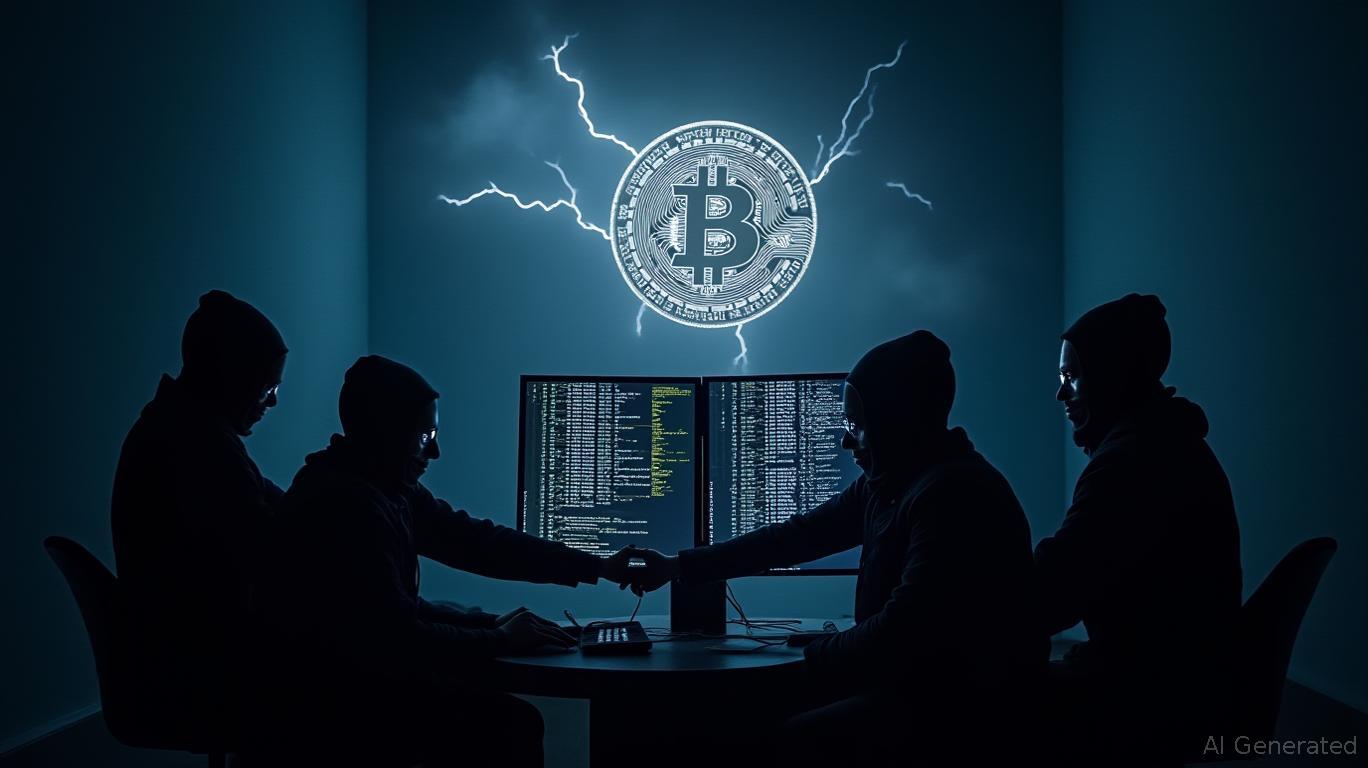AI-Powered Quantum Surge Triggers Bitcoin Security Emergency
- Solana co-founder Anatoly Yakovenko warned quantum computing could break Bitcoin’s ECDSA encryption by 2030, urging adoption of quantum-resistant protocols to prevent theft. - Experts highlight Bitcoin’s reliance on vulnerable ECDSA, which quantum computers could exploit to derive private keys from public keys, risking fund exposure. - Implementing post-quantum cryptography requires a contentious hard fork, facing resistance due to Bitcoin’s cautious approach to disruptive changes. - While timelines for

Solana Founder Cautions That Quantum Computing May Compromise Bitcoin by 2030 [ 1 ] Anatoly Yakovenko, co-creator of
Solana founder urges Bitcoin to act swiftly against quantum threats by 2030 [ 2 ] The main weakness comes from Bitcoin’s dependence on the Elliptic Curve Digital Signature Algorithm (ECDSA), which quantum computers could potentially crack. Yakovenko detailed how a quantum computer might extract private keys from public addresses, thereby making funds vulnerable to theft. Cybersecurity experts such as David Carvalho from Naoris Protocol echoed these warnings, suggesting that, if current trends persist, quantum advances could “break apart” Bitcoin’s cryptographic defenses within five years.
Solana’s Yakovenko insists Bitcoin must move quickly to counter quantum … [ 3 ] However, upgrading Bitcoin to withstand quantum attacks would be a complex task. Such a transition would require a hard fork—a fundamental update that demands broad agreement within the network. Historically, the Bitcoin community has been wary of disruptive changes. Yakovenko emphasized the need to act before quantum technology surpasses existing defenses, warning that “delaying these upgrades could mean ignoring a critical existential threat.”
Quantum Computing May Threaten Bitcoin Within Five Years [ 4 ] The timeline for when quantum computers might pose a real risk remains controversial. While Yakovenko’s 2030 forecast is seen as cautious, others, such as Blockstream CEO Adam Back, believe the risk may not materialize for another two decades. Samson Mow from Jan3 recognized the danger but believes that Bitcoin's robustness and the likelihood of other technologies failing first would help it endure. Despite these differing opinions, most agree that quantum computing is a significant long-term challenge for cryptographic systems.
Solana Founder Cautions Quantum Advances Could Endanger Bitcoin … [ 5 ] Yakovenko also discussed the broader impacts of quantum progress, urging major tech players like
The need for urgent action grows as AI and quantum research evolve rapidly. Yakovenko pointed to initiatives like Google’s Willow project—where AI is used to push quantum advancements—as proof of how quickly these fields are converging. He argued this synergy could bring about quantum breakthroughs sooner than many expect, leaving little time for complacency.
Although the Bitcoin community is split on how soon the threat might become real, Yakovenko’s cautions highlight the importance of early preparation. While navigating the technical and governance issues of a hard fork is challenging, he believes the risks of doing nothing—namely, weakened security and eroded trust—are even greater. As quantum technology develops further, debates over Bitcoin’s cryptographic future are set to become increasingly central to its evolution.
Disclaimer: The content of this article solely reflects the author's opinion and does not represent the platform in any capacity. This article is not intended to serve as a reference for making investment decisions.
You may also like
New spot margin trading pair — BARD/USDT!
BTC/ETH VIP Earn Ultimate Carnival is officially here!
New spot margin trading pair — FLOCK/USDT!
0GUSDT now launched for pre-market futures trading